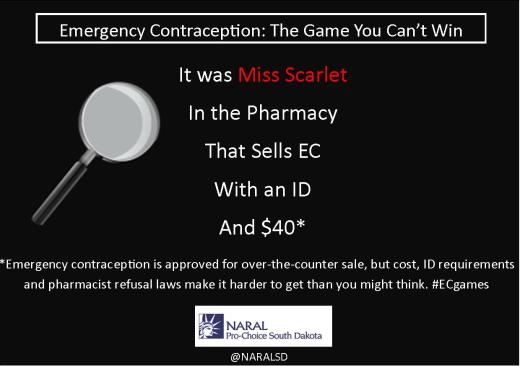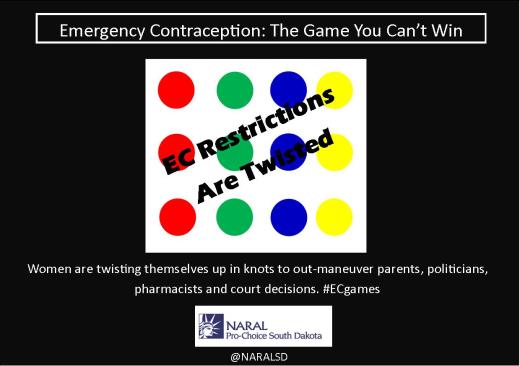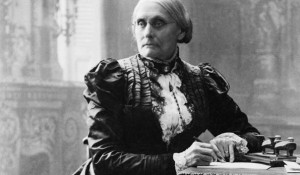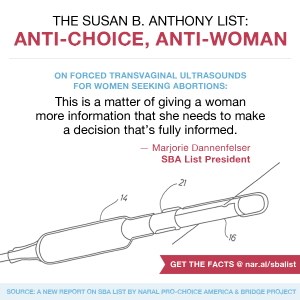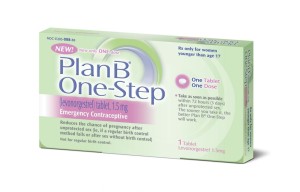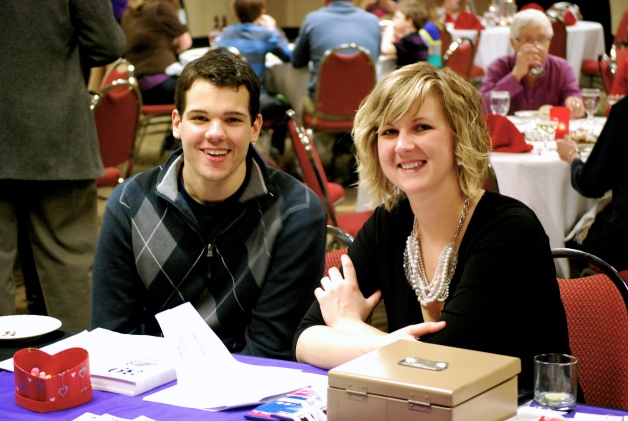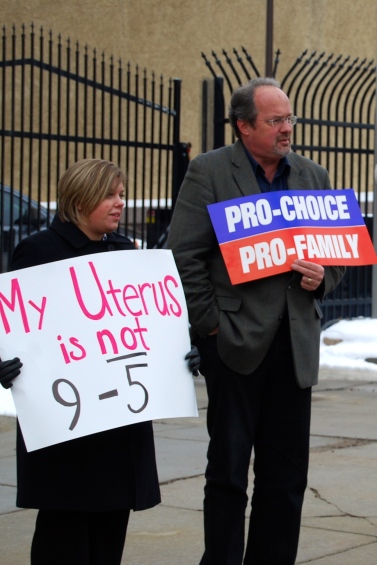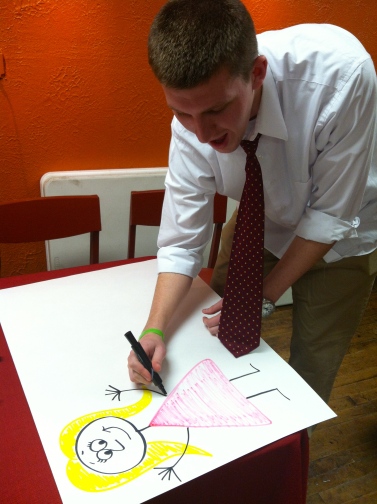We recently finished up our launch academic year of the Choice Out Loud (COL) campaign on three South Dakota campuses: the University of South Dakota, South Dakota State, and Augustana College. We had three interns, one from each campus, that represented NARAL Pro-Choice South Dakota and brought COL to their campus. These ladies have worked hard for us in the past nine months, and we are grateful for the foundation they laid for the COL program, and we are excited to see where they will go in the future.
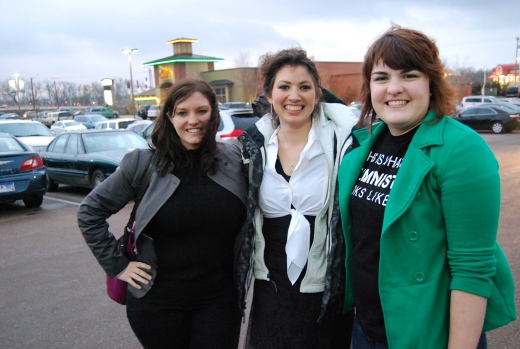
From left to right: Executive Director Alisha Sedor and Choice Out Loud interns Amy Dahl and Libby Trammell.
Throughout the academic year these three have hosted documentaries, rallies with pro-choice legislators, pro-choice bingo nights, along with participating in our annual Lobby Day and Pro-Chocolate fundraiser. They have been essential in expanding our contact with the pro-choice, millennial students who are ready to be more vocal in the fight for reproductive choice.
The campus where we made the most noise was at Augustana. Without a women’s rights or reproductive advocacy group on campus in recent years, we created quite a stir by tabling about comprehensive sex education and handing out condoms each week.
After sitting at the Valentine’s Day dinner on campus, our intern and table made the front page of the campus newspaper (the full article is transcribed below). And although the table was described as a “blemish” we are proud to have the campus discussing an issue that it hadn’t approached in awhile, if ever.
We were also encouraged by a great quote from Campus Pastor Paul Rohde. He said, “I’m certainly in favor of people having good information about healthy sex. I think sexuality is a gift of God and can be discussed. And should be discussed.”
The article also prompted a sexuality discussion held by a campus theater group, the Social Justice League. Our work had sparked a truly campus-wide discussion on sexuality, and we consider that a success and testament to our visibility work.
We are looking forward to starting campus groups at USD and Augustana in the fall, as well as continuing our work on the SDSU campus.
Please read the front page article about our tabling, as it appeared in The Augustana Mirror, below:
Condoms Cause Controversy
by Sarah Kocher (sakocher12@ole.augie.edu)
Students who dined in the Commons on Feb. 14 found themselves in the presence of condoms as well as condiments.
The Valentine’s Day meal for many students meant time with special someones, prime rib and a chocolate fountain. For others, however, the student-run table set up near the Commons’ exit was a blemish on an otherwise delightful dinner.
Senior Amy Dahl wasn’t doing anything out of the ordinary when she checked out a table for that Thursday night. Dahl interns at NARAL, a national pro-choice reproductive health advocacy group. Dahl and other students staffed a table that provided students with condoms, candy, pens, sticky notes, safe sex pamphlets and information about reproductive health.
Gay-Straight Alliance (GSA) president senior Kadyn Wittman helped to staff the table, but not on behalf of GSA.
“It was not a GSA-affiliated event,” she said, and Dahl concurs. Dahl approached Wittman about helping on a personal level, and the topic was broached at a GSA meeting one night before the event. Members could participate – or choose not to participate – at their own volition.
Dahl and Wittman have passed out condoms and pamphlets about reproductive health on campus before and admit that at no point have they been well-received.
“I was called a whore and a slut and a baby killer and told I was going to hell,” Dahl said. The “baby killer” comment was voiced by a professor, she added.
“I was told by a few people that…’I need to return to my Christian values,” Wittman said.
But neither Dahl nor Wittman believe that discussions about God and sex have to be mutually exclusive. Wittman said people should not act like students aren’t having sex simply because Augustana is a Christian school.
“I’ve seen what happens at parties and I’ve seen people leave together at parties,” Wittman said. “To ignore that seems hypocritical. Turning a blind eye and acting like this doesn’t happen doesn’t equal Christian values.”
Dahl agrees. “Christianity is never about ‘Shut up, you can’t talk about that,’” Dahl said.
Campus Pastor Paul Rohde echoes Dahl’s sentiment. “I’m certainly in favor of people having good information about healthy sex,” he said. “I think sexuality is a gift of God and can be discussed. And should be discussed.”
However, Rohde suggested groups like NARAL and students who hand out information should remember that abstinence should be offered as a kind of safe sex along with other advocated methods.
“[Sex] shouldn’t be a taboo subject,” Dahl said. She thinks teens are having sex younger and younger, and if it’s a taboo subject, “we’re just being foolish about it.” She set up the table in the Commons with the goal of empowering the younger generation to make decisions about their own bodies.
Dahl admits she didn’t receive any education about sex or reproductive health at a young age. Her parents never had “the talk” with her, and she didn’t know about sex until she was forced to learn.
“I applied [for the NARAL internship] because I was raped when I was 16, and that’s how I experienced sex. Who knows what could have been different, had I known?”
However, while Rohde advocated proper information, he also admitted that he has questions about the choice of setting for the distribution of this material. “Is that helpful venue on a conversation about safe sex?” he said.
This questions is one the Augustana’s administration has particularly been struggling with, but less because of the content than how it was dispersed.
“The controversy is really not that there’s something wrong with the group,” Associate Dead of Students Jim Bies said. Indeed, part of what Augustana advocates in its student handbook is the freedom of inquiry and expression. “[This incident] serves as a very good reminder that the reason students go to college is to become engaged in topics as a learning issue,” Bies said.
The student handbook itself states that, “Student and student organizations are free to examine and discuss all questions of interest to them and express opinions publicly and privately.” The problem, then, is not the content, Bies said, but that the group was invited outside of procedures.
Dahl checked out the table as usual, she said, admitting to the administrative personnel in charge of such interactions that NARAL was not a student organization, but that GSA agreed to partner with NARAL so that a student-run booth could be set up. Approval was granted.
But “GSA had nothing to do with the event, and that’s a problem,” Bies said. Because of the outside organization, approval should have been granted directly to NARAL in a different way. Bies said approval would not have been granted had the proper procedures been executed because dining services worked so hard on a meal that was then disrupted and distracted from..
The NARAL table in the dining hall “added a little lightning to the jar,” Bies said.
According to Bies, the trusting set of procedures are being reviewed and the administration is now drafting proposed changes, which will be brought before ASA to ensure that students are involved in the decision-making process.
And many students want to have a say. Wittman and Bies break the student body into thirds based on their perceived responses regarding NARAL’s booth.
One third said that the table was upsetting and inappropriate. Another third offered no acknowledgement or made a joke out of the situation: “We saw condoms stuck on doorknobs across campus. Condoms strewn here and there,” Bies said. The last third saw it as a non-issue or were in favor of the motivations of the students working the table.
Freshman Christian Einertson admitted he had been very vocal about the event, placing himself in the first third of student, those upset by the disruption.
“[The booth] was pretty much blocking the exit,” he said. “It was hard to get past if you didn’t want to participate.”
Einertson said that the conversation promoted by the table was not one students should be having at all. According to Einertson, NARAL was “handing out something that would cause other people to sin.”
Dahl sees it a bit differently.
“God made sex for marriage,” she said. “Our generation breaks that, and I think that breaks God’s heart, but he recognizes that we’re all sinners.”
“Who do we think we are to declare what is or is not okay with God, or to cast judgment?” Dahl said. Instead, when all things are said and done, “I’m trying to love my neighbors by making them aware.”
For more information on student rights and freedoms, visit the student handbook online at www/augie.edu/campuslife/dean-students-office/student-handbook/student-handbook-table-table-contents.
 While the team was in Rapid, we also celebrated Pride at the festival sponsored by the Black Hills Center for Equality. There was a great showing of vendors and attendees. The staff proudly sported “NOH8” tattoos, along with many of the festival goers. It was great to be see such an upbeat crowd of people taking pride in equality and all kinds of love.
While the team was in Rapid, we also celebrated Pride at the festival sponsored by the Black Hills Center for Equality. There was a great showing of vendors and attendees. The staff proudly sported “NOH8” tattoos, along with many of the festival goers. It was great to be see such an upbeat crowd of people taking pride in equality and all kinds of love.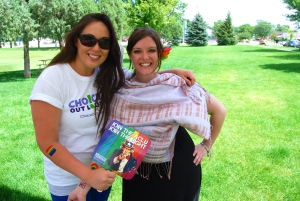
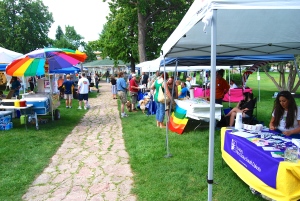 After the Pride Festival, the League of Young Leaders (LoYL) hosted a happy hour and painting session – and some more celebration of equality.
After the Pride Festival, the League of Young Leaders (LoYL) hosted a happy hour and painting session – and some more celebration of equality.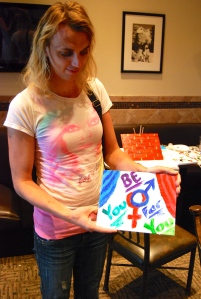 Be you, for you. We love that!
Be you, for you. We love that!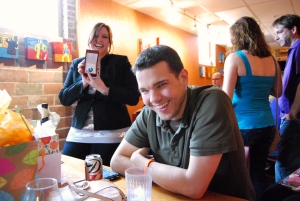
 We have been SO fortune to have a line of strong, fearless leaders who have championed our fight for women’s reproductive rights in South Dakota. Alisha’s departure served as reminder for how important it is to celebrate the strong women we have the good fortune of working with at NARAL Pro-Choice South Dakota.
We have been SO fortune to have a line of strong, fearless leaders who have championed our fight for women’s reproductive rights in South Dakota. Alisha’s departure served as reminder for how important it is to celebrate the strong women we have the good fortune of working with at NARAL Pro-Choice South Dakota.






